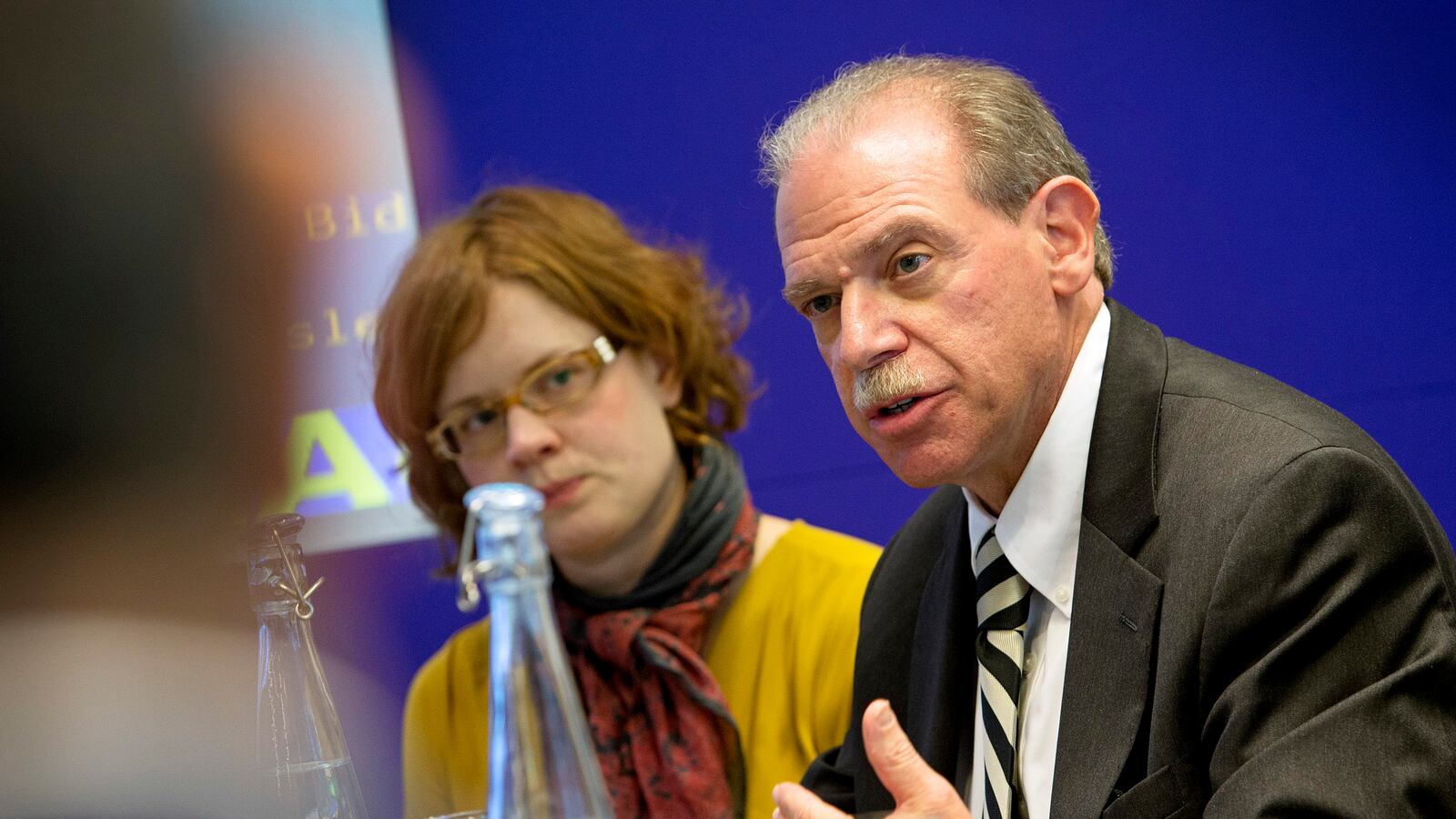Al Qaeda in the Arabian Peninsula has offered a bounty to anyone who kills America’s ambassador to Yemen, calling it a move to “inspire and encourage our Muslim nation for jihad.” It’s the first such threat made publicly against an American diplomat since assailants killed the U.S. ambassador to Libya and three other Benghazi consulate employees in September.

The reward, announced in an audio message via Al-Malahem Foundation, the group’s media arm, and circulated on extremist Web forums, would be paid in the form of three kilograms of gold—worth about $160,000—the message said, without providing details on where and how the payment would be delivered. The recording included mention of a 5 million Yemeni riyal ($23,000) reward to anyone who kills an American soldier on Yemeni soil.
Gerald Feierstein has served as ambassador to Yemen since September 2010, according to the embassy website. Prior to his appointment, he served as deputy chief of mission in Islamabad. A Yemeni government official who spoke to The Daily Beast on the condition of anonymity said Ambassador Feierstein is “very well protected” and added that the “threats are taken seriously, and he is the most secured diplomat in Yemen.”
Yemen, the ancestral home of the late Osama bin Laden, was the site of an attack on the USS Cole in 2000 that killed 17 American sailors. It was also the home of the late Anwar al-Awlaki, the U.S.-born Islamic cleric who plotted the attempted bombing of a Detroit-bound airplane in 2009, now notorious for using an underwear bomb.
Yemeni protesters, inspired by popular uprisings across the Arab world, successfully ousted their president of 33 years, Ali Abdullah Saleh, in February. However, like many other countries in the region, security forces were stretched thin during the yearlong revolution, and law and order and political and economic stability have since declined. Yemen ranked eighth on Foreign Policy’s 2012 Failed States Index, scoring almost on par with Haiti.
In September the embassy in Yemen’s capital, Sana, was the scene of hostile protests denouncing an online film produced in the United States that was deemed offensive to Islam for its portrayal of the Prophet Muhammad as a psychotic womanizer. That same day, Sept. 11, attackers stormed the U.S. Consulate in Benghazi, killing Ambassador Christopher Stevens and three other diplomats. It was initially assumed that the attacks were linked to the controversial film; however, an investigation later revealed that they were, in fact, premeditated, and that repeated requests for greater security at U.S. government complexes in Libya had been denied.
“Al Qaeda in the Arabian Peninsula is of course still very much active,” said Christopher Davidson, a Middle East expert at Durham University in the U.K. “However, they are having to turn to softer targets, such as Western individuals. Doubtless the Benghazi ‘success’ has influenced their decision making here.”
The U.S. Embassy issued a warning last week to its citizens about the “high risk of kidnapping” throughout Yemen, according to a statement posted on its website. The warning came on the heels of reports that three Westerners were abducted in a busy commercial center in the capital.
On Sunday, at least three suspected al Qaeda militants were killed by a U.S. drone strike in Yemen's al-Bayda province, state-run media reported. Earlier this year the White House agreed to a more aggressive campaign of drone strikes in Yemen, targeting individuals whose behavior signals the presence of an important militant figure or extremist activity. While drone attacks have demonstrated some successful results, killing militants al-Awlaki and Saeed al-Shihri within one year, they are fueling anti-American sentiments worldwide from those who accuse the U.S. of recklessly targeting civilians and violating the sovereignty of countries like Yemen and Pakistan.Washington-based think tank the New America Foundation said last week that U.S drone attacks in Yemen have risen to 53 this year, almost triple the attacks last year. The civilian casualty rate from those strikes is estimated to be between 4 percent and 8.5 percent. The George W. Bush administration, by contrast, only launched one drone attack in Yemen, according to New America.The U.S. Defense Department reversed a freeze on military aid to Yemen in June, delivering more than $112 million worth of equipment and military training this year. That funding was reportedly geared toward buying two twin-engine transport planes, inflatable boats, communications equipment, and a variety of guns and ammunition, the Pentagon said. Washington has provided more than $300 million annually to Yemen in military, development, and humanitarian aid over the past five years.However, many analysts suggest that economic aid is the key to preventing Yemen’s security problems from going from bad to worse. According to the World Bank, the economy shrunk 11 percent in 2011, with youth unemployment estimated at a whopping 60 percent. The poverty rate soared since the start of the revolution and rose to about 54.5 percent at the end of 2011—ideal statistics for many extremist groups that often garner support by wooing the downtrodden.“Gains are fragile and could be undermined by any one of the multiple, immediate, and long-term challenges that Yemen faces,” the World Bank wrote in a September report. “One of the poorest countries in the Arab region, the crisis exacerbated an already grave situation.”






